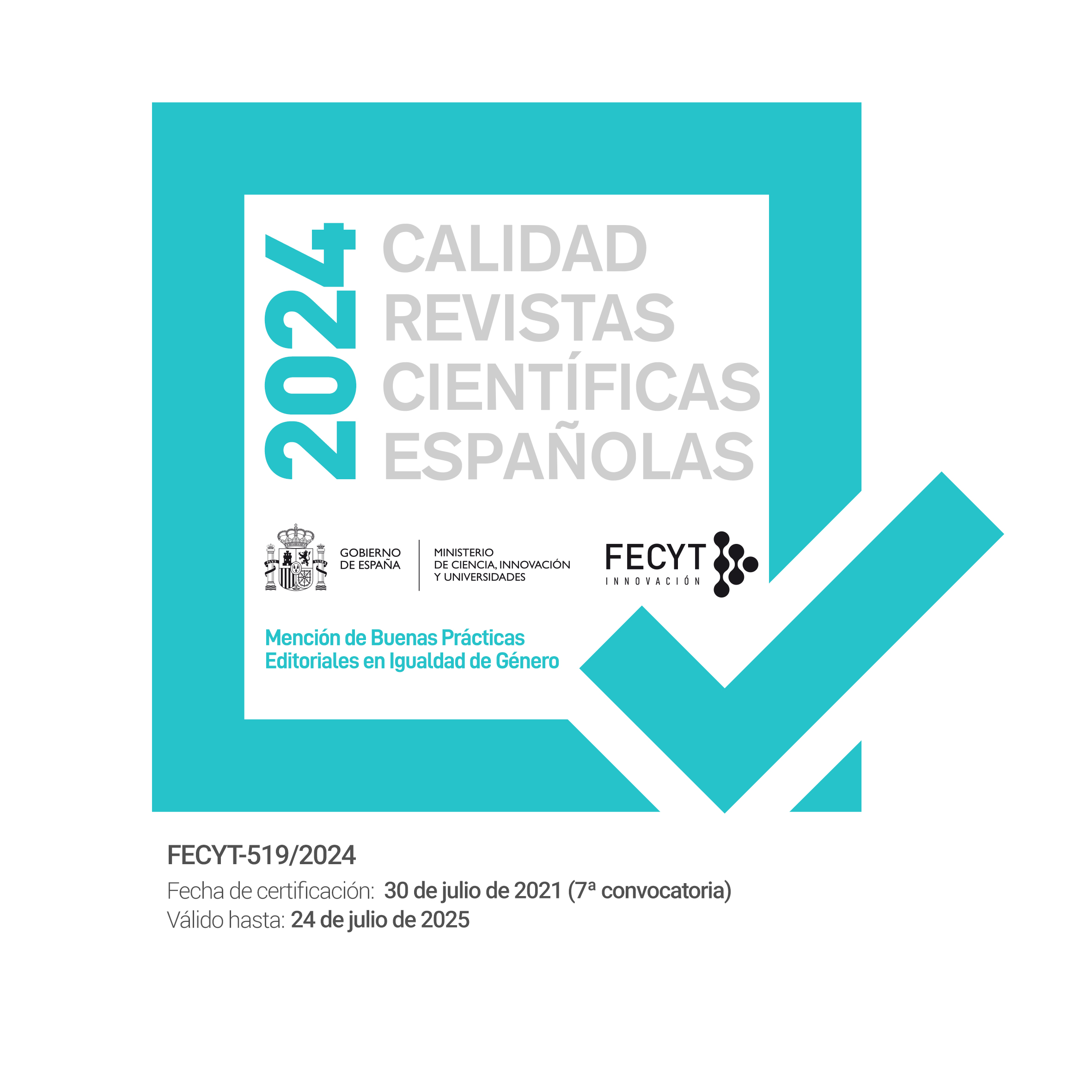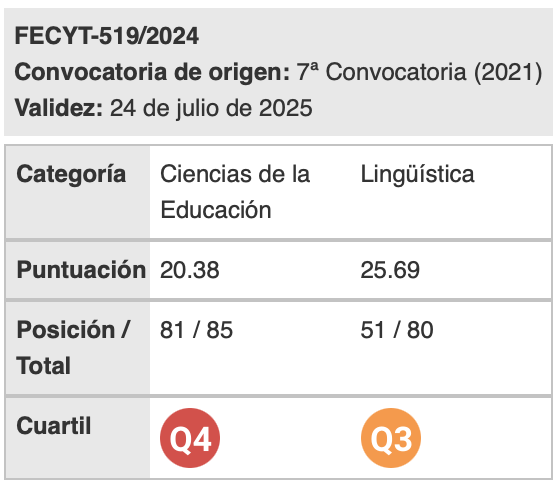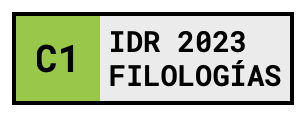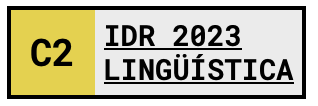International participation and discursive choices in the digital genre of the travel blog comment
Palabras clave:
blogs de viajes, comentario del blog, comunicación a través de ILF, géneros digitales, géneros reconfiguradosResumen
Actualmente, la comunicación informal global abarca géneros digitales que promueven interacciones dialógicas e inmediatas. Ejemplo de ello son los blogs, donde la interacción de los usuarios se realiza mediante el género del comentario a un post anterior. En un corpus de 15 entradas de 5 blogs de viajes, se han analizado 318 comentarios para estudiar la participación internacional en la blogosfera de distintos usuarios de la lengua inglesa, nativos y no nativos. Se explora la cantidad y extensión de sus contribuciones para considerar el posible impacto de sus características linguaculturales en contextos de comunicación digital a través de ILF. Un análisis discursivo de los comentarios de blogs de viajes derivado de los datos enfatiza las características principales del género para comprender mejor este discurso digital y así favorecer una participación internacional efectiva en este contexto en la web.
Descargas
Citas
Baker, W. (2015). Culture and Identity through English as a Lingua Franca: Rethinking Concepts and Goals in Intercultural Communication. Berlin: De Gruyter Mouton.
Bakthin, M. (1986). Speech Genres and Other Late Essays. Texas: University of Texas Press. Bhatia, V.K (2004). Worlds of Written Discourse: A Genre-Based View. London: Continuum.
Biber, D., Johansson, S., Leech, G., Conrad, S. & Finegan, E. (1999). Longman Grammar of Spoken and Written English. Harlow: Pearson Education Limited.
Bolton, K. & Kachru, B.B. (2006). World Englishes: Critical Concepts in Linguistics, Volume 5. London: Routledge. Crystal, D. (2006). Language in the Internet. Cambridge: Cambridge University Presss.
Goethals, P. (2013). Travel blogs written by non-professionals: An exploratory analysis of a tourism genre. Ibérica 25, 147-170.
Grafton, K. (2009). Situating the public social actions of blog posts. In J. Giltrow & D. Stein (Eds.) Genres in the Internet: Issues in the Theory of Genre (pp. 85-112). Philadelphia: John Benjamins.
Heath, M. (2018). Orthography in social media: Pragmatic and prosodic interpretations of caps lock. Proceedings of the Linguistic Society of American 3(55), 1-13.
Herring, S. (2008). Virtual community. In L.M. Given (Ed.), Encyclopaedia of Qualitative Research Methods (pp. 920-921). Los Angeles: Sage.
Herring, S. (2012). Grammar and Electronic Communication. In C. Chapelle (Ed.), Encyclopedia of Applied Linguistics. Volume 6. Malden: Wiley-Blackwell.
Herring, S. (2013). Discourse in Web 2.0: Familiar, Reconfigured, and Emergent. In D. Tannen & A.M. Tester (Eds.) Discourse 2.0: Language and New Media (pp. 1-25). Washington: Georgetown University Press. 1-25.
Heyd, T. (2016). Digital genres and process of remediation. In A. Georgakopoulou & T. Spilioti (Eds.), The Routledge Handbook of Language and Digital Communication (pp. 87-102). London: Routledge.
Hyland, K. (2005). Metadiscourse: Exploring Interaction in Writing. London: Continuum.
Jenkins H. (1992). Textual Poachers: Television Fans and Participatory Culture. London: Routledge.
Jenkins H. (2006). Convergence Culture: Where Old and New Media Collide. New York: New York University Press.
Lomborg, S. (2011). Social media as communicative genres. MedieKultur: Journal of Media and Communication Research 51, 55-71. Mauranen, A. (2012). Exploring ELF: Academic English Shaped by Non-native Speakers. Cambridge: Cambridge University Press. Mey, J.L. (2018). How social is the Internet? A pragmatic view. Internet Pragmatics 1, 13-28
Myers, G. (2010). The Discourse of Blogs and Wikis. London: Continuum.
Page, R. (2015). Moving between the big and the small: Identity and interaction in digital contexts. In A. Georgakopoulou & T. Spilioti (Eds.), The Routledge Handbook of Language and Digital Communication (pp. 403-407). London: Routledge.
Page, R. (2012). The linguistics of self-branding and micro-celebrity in Twitter: The role of hashtags. Discourse & Communication 6 (2), 181-201.
Pascual, D. (2018). Analysing digital communication: Discursive features, rhetorical structure and the use of ELF in travel blog posts. Journal of English Studies 16 , 255-279.
Qian, H. & Scott. C.R. (2007). Anonymity and self-disclosure on weblogs. Journal of Computer-Mediated Communication 12, 1428-1451.
Quirk, R., Greenbaum, S., Leech, G. & Svartvik, J. (1985). A Comprehensive Grammar of the English Language. London: Longman.
Rhysina-Pankova, M. & Kugele, J. (2013). Blog: A medium for intellectual engagement with course readings and participants. In D. Tannen & A.M. Trester (Eds.), Discourse 2.0: Language and New Media (pp. 183-200). Washington: Georgetown University
Press. Seidlhofer, B. (2011). Understanding English as a Lingua Franca. Oxford: Oxford University Press. Swales, J. (2004). Research Genres: Explorations and Applications. Cambridge: Cambridge University Press.
Descargas
Publicado
Cómo citar
Número
Sección
Licencia
Aquellos autores/as que tengan publicaciones con esta revista, aceptan los términos siguientes:
- Los autores/as conservarán sus derechos de autor y garantizarán a la revista el derecho de primera publicación de su obra, el cuál estará simultáneamente sujeto a la Licencia de reconocimiento de Creative Commons que permite a terceros compartir la obra siempre que se indique su autor y su primera publicación esta revista.
- Los autores/as podrán adoptar otros acuerdos de licencia no exclusiva de distribución de la versión de la obra publicada (p. ej.: depositarla en un archivo telemático institucional o publicarla en un volumen monográfico) siempre que se indique la publicación inicial en esta revista.
- Se permite y recomienda a los autores/as difundir su obra a través de Internet (p. ej.: en archivos telemáticos institucionales o en su página web) antes y durante el proceso de envío, lo cual puede producir intercambios interesantes y aumentar las citas de la obra publicada. (Véase El efecto del acceso abierto).

Revista de Lenguas para fines específicos is licensed under a Creative Commons Reconocimiento-NoComercial-SinObraDerivada 4.0 Internacional License.























